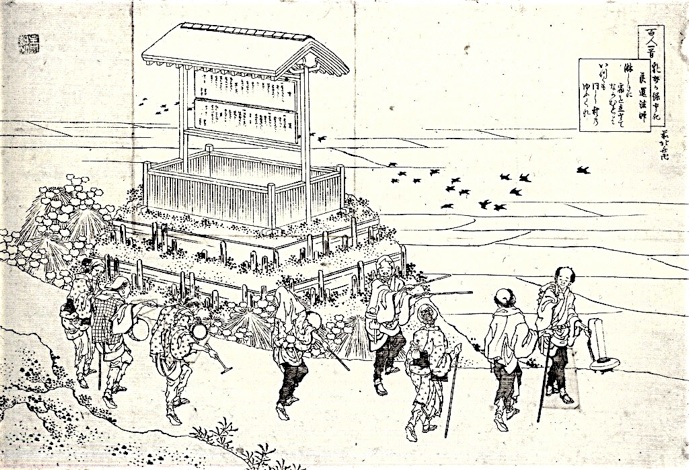良暹法師


寂しさに
宿を立ち出でて
ながむれば
いづこも同じ
秋の夕暮れ
りょうぜんほうし
さびしさに
やどおたちいでて
ながむれば
いずこもおなじ
あきのゆうぐれ
The Monk Ryozen
When all alone
I leave my hut
And gaze around,
Everywhere it’s the same
Autumn twilight.
Ryozen Hoshi or Rozen (ca. 990 - ca. 1060), was a monk at Mt. Hiei and also served as betto (administrator) at Gionsha Shrine. He retired in Ohara, north of Kyoto. Thirty-two of his poems are extant.
Hokusai shows us an evening scene (the leading man is holding a lantern) with people playing music while passing a seisatsu (literally ‘life taken, life given’) or imperial message board (usually notifying prohibitions). The group could be going to a bon odori, festivities to honour the deceased ancestors. So it seems Hokusai is not taking the sadness of the poem too seriously.
Nagamu (gaze around) can also mean ‘lost in melancholy thoughts, chant or compose a poem’. Isn’t that wonderful? The mind-scope of the ancient Japanese poets went from ‘gaze out into the distance’ over ‘become lost in melancholy thoughts’ to ‘compose a poem’.
Hokusai

